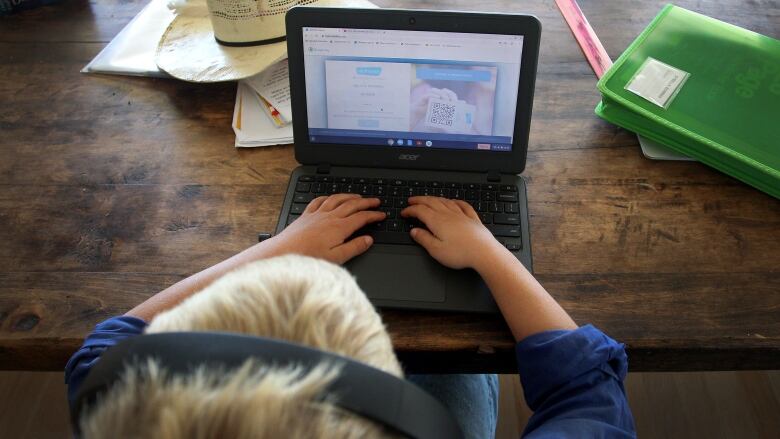Are the kids going to be alright? Experts answer your questions about the pandemic and children
Dr. Anna Banerj and Dr. Tina Montreuil answer the concerns of parents and children

For nearly a year now the pandemic has shaped and altered adults' daily lives.
But some experts say that for children and teens — who are still learning about who they are, and the world around them — the impacts can feel particularly acute.
In the short term, many parents are struggling to juggle their work life with new childcare responsibilities.
"Generally, children are adapting to their new reality," Dr. Tina Montreuil told The Current's Matt Galloway.
Montreuil is an assistant professor of educational and counselling psychology, and an associate member of the department of psychiatry at McGill University.
"I think the issue is also to ask ourselves as parents, 'How are we doing?' Because, of course, our children are a reflection of how we are managing this pandemic," she said.

Dr. Anna Banerji, pediatrician and infectious disease specialist, added that not all children are affected by the pandemic equally.
"We know that racialized groups are disproportionately impacted," said Banerji, who is also faculty lead in Indigenous and refugee health at the University of Toronto's Dalla Lana School of Public Health.
"There's a lot of ways that poverty, which tends to occur in some racialized groups, impacts the way COVID impacts the family."
Both experts answered listeners' questions about how to support kids through the pandemic — and come out healthy and happy on the other side.

When is this going to be over?
The pandemic has changed peoples' lives so radically over the past year.
Montreuil noted that it can be hard for many people, but especially kids, to accept when they're unable to control their destiny.
"But there's also the unpredictability, the not knowing. And currently the pandemic is really playing on that dimension," she said.
She observed that living in the moment can soothe some of those anxieties that come with uncertainty.
"In therapy, we work on making us more accepting of this notion of not knowing," she says.
"It's a very tough task to achieve, but it's essentially something that we have to train our brain to become more accustomed to."
How can we support kids worried about bringing COVID-19 home to a parent who's at higher risk?
Banerji says it's important to acknowledge the fears a child may have one or both of their parents are immunocompromised or otherwise at a higher risk of infection.
"I think it's very challenging and I can see where the anxiety comes from."

But she added that while we have to accept the challenges in front of us, looking towards the future can help soothe those anxieties.
"So far, you know, over the past 10 months, you haven't gotten sick, and you haven't gotten COVID," she said as an example.
"[It's] just the hope that this is not going to last for forever, you know? And in the next few months, we probably will see things go down quite significantly with the warmer weather."
What can parents do if they're worried their child is falling behind in school?
With the home now becoming school for many children, there are concerns from parents that their kids might be falling behind. This point is especially important for more children with learning challenges, who may not have the best resources to learn from home.

While Banerji acknowledges that these are pertinent issues for all different kinds of families, she also acknowledges that parents might need to give themselves a break.
"You're not alone," she says. "There are so many families, if not the majority of families, that are struggling with this right now."
Banerji acknowledges that while it is natural for some parents to worry about their kids' futures, the realisation that this is a pressure felt by many Canadian families right now might help to alleviate these anxieties.
"Maybe all of us need to decrease the pressure on ourselves ... I think if we can reduce the pressure on families and kids, then that will go a long way in helping them learn and adjust."
What can kids do during the lockdown to benefit their mental health?
As the pandemic has continued, our lives have become increasingly isolated.
Despite, social media platforms allowing for some forms of social activity, many typical forms of engagement have been significantly limited.
With lots of displaced time now on their hands, parents may worry that their children could be struggling with their mental health.
Montreuil argues that the first step is to make them more aware of how they are feeling, or "aware of their thoughts."
"I think it's a good idea to do that for children to make a list, for example, of things that relax them, things that are enjoyable hobbies for them, and then get them to pick and choose from this list."
Written by Oliver Thompson. Interview produced by Idella Sturino and Celeste Decaire. Edited for length and clarity.
